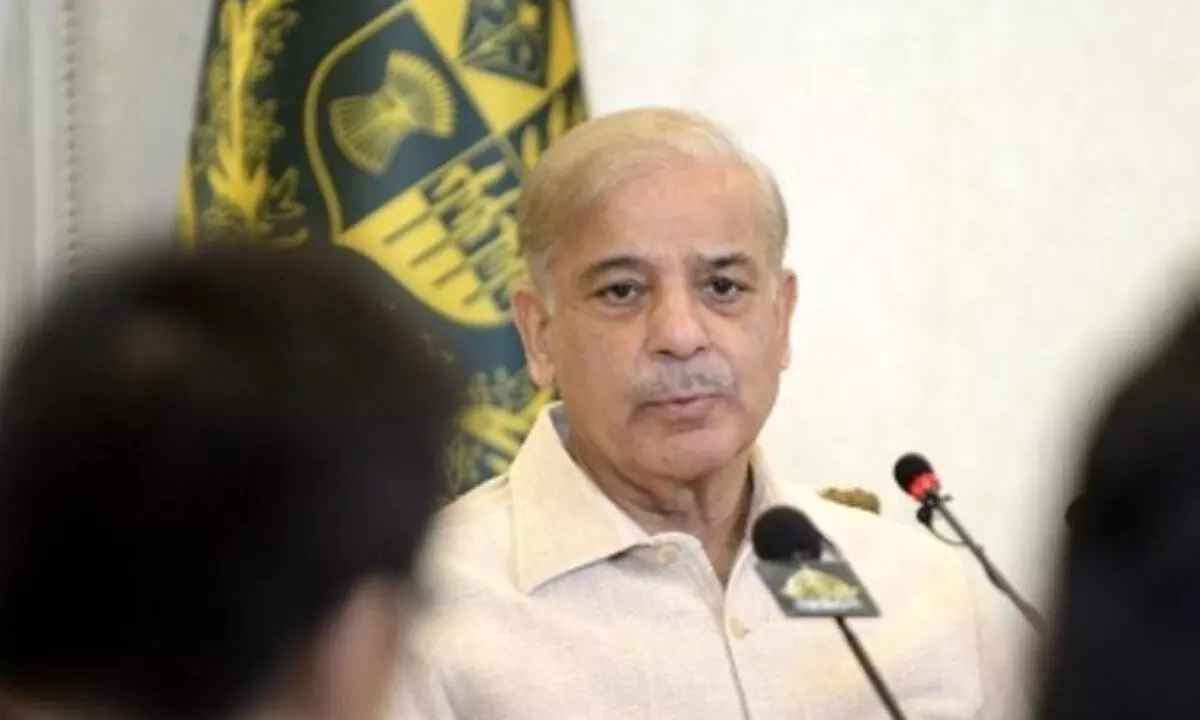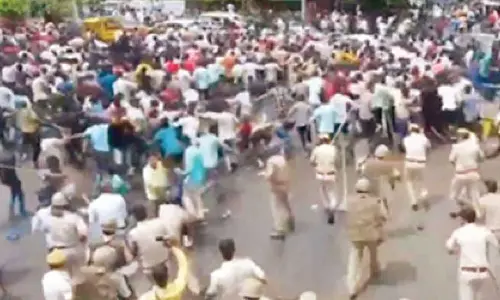Can cash-strapped Pakistan carry a sustainable counter-terrorism Afghan policy?
Share :

The latest airstrikes by Pakistan in Afghanistan on suspected militant sanctuaries have the potential threat of an escalation into a full-blown conflict.
Islamabad: The latest airstrikes by Pakistan in Afghanistan on suspected militant sanctuaries have the potential threat of an escalation into a full-blown conflict.
While the Pakistan government has stated that it will not tolerate terror emanating from across the Afghan border and would respond with full force; the question arises if Islamabad is capable of conducting and sustaining a full-out military offensive and confrontation with Afghanistan, in view of its already severing economic crisis and deteriorating financial stability?
Pakistan is seeing a major spike in terror attacks in the year 2024, with February being the worst and the deadliest. Security forces have been actively conducting Intelligence Based Operations (IBO) claiming their success in rooting our terror footprints.
However, the latest terror attack in Gwadar and ongoing terror attacks on security personnel and security installations in Khyber Pukhtunkhwa (KP) province have re-established strong terror footprints still present in the country.
The newly elected government has said that it will respond to any terror-related aggression with full force and will now bow down to the terror threat.
While this stance may look like a much-needed anti-terrorism policy; many question if the stance is only to get political mileage and divert attention from the looming economic and financial crisis, the country is faced with.
Zahid Hussain, a journalist and author says Pakistan seems to have lost its patience after the recent terror attack that claimed lives of seven Pakistani soldiers.
“Islamabad seems to have lost its patience after the attack. The air strike came a day after Pakistani leaders vowed to take the war to the terrorist sanctuaries across the border. The air strikes are the first Pakistan has conducted this year, or at least the first officially confirmed strikes. There have been more reported in the past as well.. but Pakistan has always maintained a plausible deniability,” he said.
“It is easier to say that the war will be taken back onto the terrorists, but it would be close to impossible for Islamabad to launch a full-out military operation. The reason for that is the country’s crippling economy. Pakistan doesn’t have the financial and economic strength to allocate a massive chunk of its finances for an anti-terrorism campaign,” he added.
Pakistan’s economic condition is reeling on the edge of a collapse. The country’s political and economic turmoil is directly posing challenges to its sovereignty. It is a fact that the majority of Pakistanis pay their bills that are far higher than their monthly income. Record inflation, a hike in the power tariff and the towering circular debt in the power sector have kept the overall economic situation on its knees.
Pakistan’s economy is dictated by the International Monetary Fund (IMF), which has ensured compliance with its strict and tough conditions in order to keep it from collapsing and suffering a meltdown.
“Pakistan’s economic crisis is far worse than expected. The country would want to take out terrorism, but it cannot formulate a sustainable policy or a military offensive. It is because the country’s financial issues do not allow such an operation. We do not have the money to sustain such an operation,” said Zahid Hussain.
He says that the country’s financial problems can be assessed by the fact that the government went to the IMF seeking a long-term financial facilitation plan.
“And what they got today was a staff-level agreement for the release of the last loan tranche of $1.1 billion. Moreover, the global lenders have cautioned about the growth of the country and have said it would remain modest with inflation above target,” he added.
In Pakistan, experts and analysts believe that the use of strong words to mention Afghanistan in relation to terrorism can be seen as a responsive strong position. It may attract appreciation for the new political leadership for standing against terrorism but it is not something that would translate into actions because of the severe economic crises, blocking any such counter-terrorism offensive.















